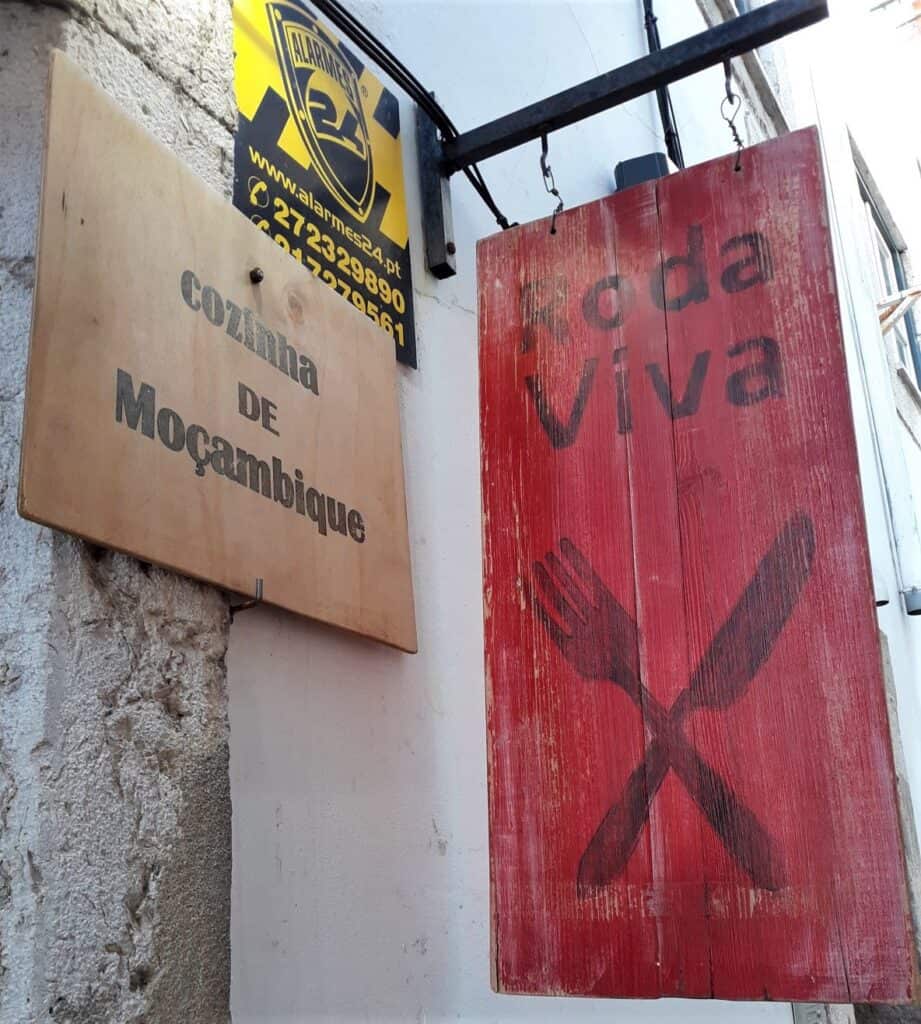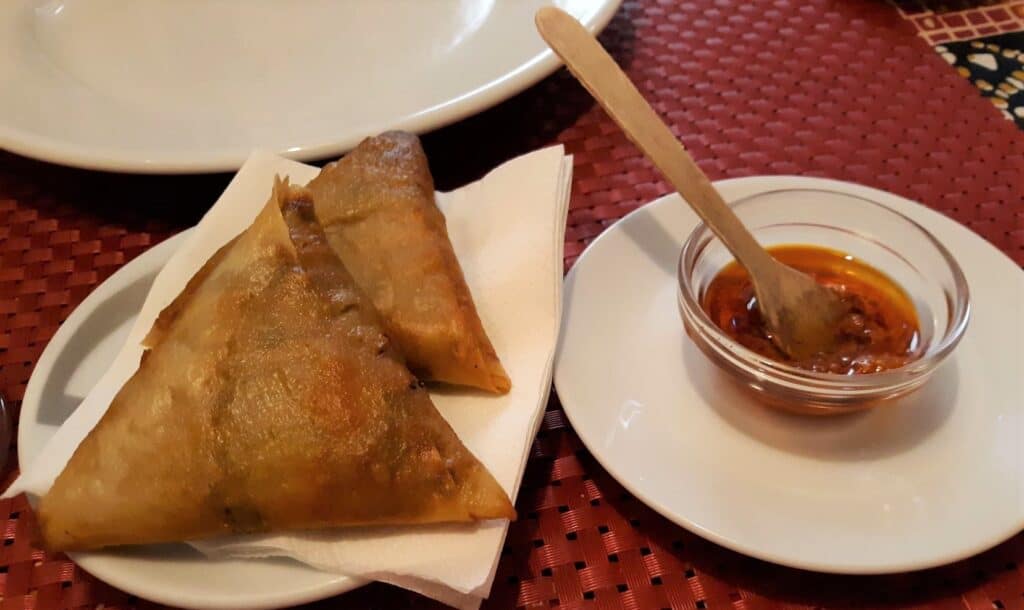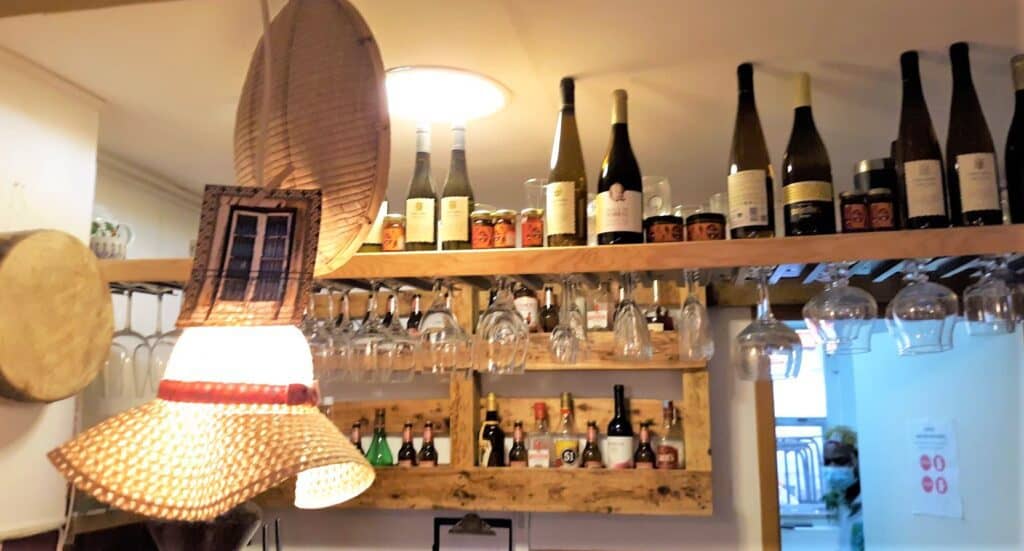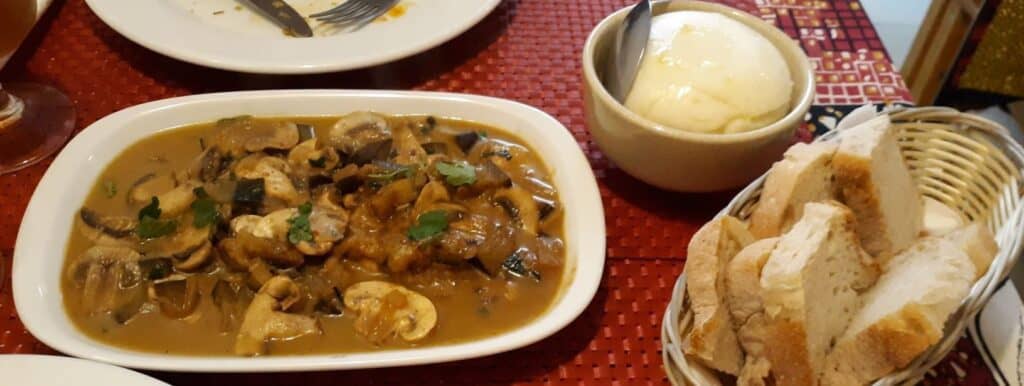Some of the best food in Lisbon has its origin in former Portuguese colonies.

Mozambique
Mozambique is a country in southeast Africa with a population of mostly Bantu-speaking people who have lived there for centuries.
In 1498, explorer Vasco de Gama arrived in Mozambique. Within a couple of years, Portuguese trading posts in the country supplanted the existing Arab ones.
Recognizing the strategic importance of ports as a station on the way to India and the Far East, Portugal gradually colonized Mozambique and expanded the African slave trade begun by the Muslim Arabs.
Portugal ruled the country for centuries. Then, in 1964, Mozambican War of Independence broke out and the country finally gained independence in 1975. Native Portuguese were expelled and Mozambique fell into a civil war for control of the country. The economy collapsed as the war lasted until 1992. However, even with the official end of the war, low level insurgencies led by Islamic militia groups still plague the country.
Immigration to Portugal
Like Brazil, India and other former Portuguese colonies, people from Mozambique have immigrated to Portugal to make a new life for themselves and their families. However, even though Mozambique was an important colony for Portugal, relatively few people from Mozambique are moving there. In fact, more people from Sweden moved to Portugal in 2020 than did people from Mozambique. And 50 times more people made the move from Brazil!
Roda Viva

While many African immigrants (and their children and grandchildren) work construction and service jobs, and many live in suburban ghettos outside the city, there is still a vibrant, if small, African food scene in Lisbon.
Octavio Chamba came from Mozambique to study ethnomusicology in Lisbon. Today, he is the owner/operator of restaurant Roda Viva. However, if you ask him if he owns the place, he’ll likely reply that he works “for the bank.” Octavio is a one man show (at least he has been the times we’ve visited), busily greeting customers, taking orders, cooking meals, serving dishes. Yet, he’s still consistently friendly.

Roda Viva is tucked away on an alley in the historic Alfama neighborhood of Lisbon. In the main room is a half dozen tables and a few more are in a space next door. The décor is homey and hip, like your bohemian uncle visited an estate sale.
The Food
Roda Viva isn’t a vegetarian restaurant, but there are lots of veg. options on the menu.
One of my favorites is Tchatinho. It’s listed as a Mutchutcho (snack) on the menu, but really, I find it plenty for lunch. Mushrooms and eggplant are cooked in a spiced tomato sauce. I don’t know what Octavio puts in the that sauce, but it’s divine.
Pair the Tchatinho with a side of Xima, a white corn dough that is quite similar to polenta. The Xima sucks up the delicious Tchatinho sauce and I can say is “wow.”

Octavio also makes his own hot sauce, a take on the Portuguese Piri Piri sauce. He’ll serve it on the side and if you like it, he’ll sell you a jar to take home. It’s a perfect souvenir of a delightful meal.
About the Author

Brent Petersen is the Editor-in-Chief of Destination Eat Drink. He currently resides in Setubal, Portugal. Brent has written the novel “Truffle Hunt” (Eckhartz Press) and the short story collection “That Bird.” He’s also written dozens of foodie travel guides to cities around the world on Destination Eat Drink, including in-depth eating and drinking guides to Lisbon, Porto, Sintra, Monsaraz, and Evora in Portugal. Brent’s podcast, also called Destination Eat Drink, is available on all major podcasting platforms and is distributed by the Radio Misfits Podcast Network.
